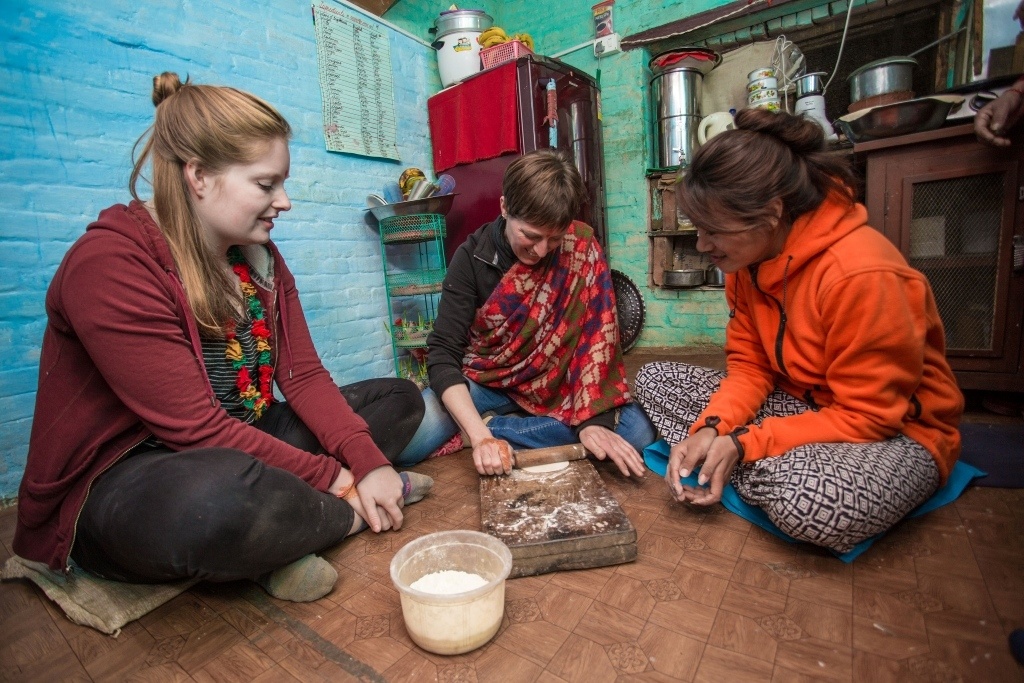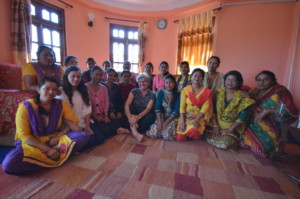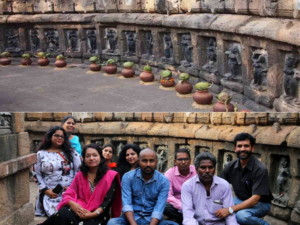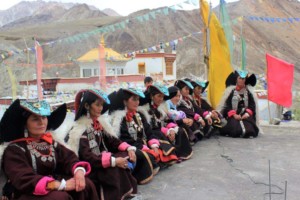How community homestays contribute to experiential travel & tourism in Nepal

Homestays encourage visits to under-appreciated parts of any destination and longer stays overall. In this “Good Tourism” Insight, Aayusha Prasain explains how community-based homestays in Nepal offer a more authentic experience, help spread the benefits of travel & tourism more widely, and may even promote an appreciation of local culture and heritage among young people.
When we hear the words ‘experiential travel’ or ‘experiential tourism’, we don’t always think about them positively. We think that maybe they are just more marketing buzz phrases.
Does the jargon justify the meaning of its constituent words, or is it a way to promote superficial activities as authentic ones?
Why does the travel industry need to sell ‘experiences’ anyway? Can’t travellers simply experience without expectation? Is experiential travel worth it?
‘Experiential travel’ has come under intense scrutiny and criticism. Many would say that the phrase is a cynical creation of marketers looking to extract extra revenue from their target markets.
Recent travel trends show a rise in demand for ‘authentic’ travel experiences; especially with the pandemic and global shutdown. A tide of desire for more immersive and authentic tourism — experiential travel — has risen.
How we define the term matters.
What constitutes authentic experiential travel in Nepal?
One way to approach authentic travel experiences could be living with locals in their homes and participating in their culture and way of life. Nevertheless, we should caution against forcing hosts to ‘meet the demand’ or otherwise manipulate the experience to please or trick the traveller.
Of course the benefits of experiential travel should never be limited to the travellers or the travel supply chain. Tourism should support local host communities as they maintain their authentic culture and beautiful places, and extend them opportunities to participate more proactively in the industry.
Also see Aadyaa Pandey’s “GT” Insight
“How a community-based homestay network empowers women in Nepal”
Tourism activities that include stays with local host families enhance the potential of any destination to delight and surprise travellers. For example, when people think about going to Nepal, they often imagine trekking in the mountains. Nepal has always been more than mountains, of course, and the world has yet to take the time to explore the country’s rich culture and heritage.
Carefully designed experiences open up opportunities for travellers to explore local culture. For example, a traveller who participates in a cooking class might be interested to know where the ingredients come from, how they are produced, and any special occasions associated with a particular dish. This interest may be the catalyst for an engaging conversation and the foundation of a genuine friendship.
Homestays, especially ‘community homestays’ that foster collaboration and harmony within communities, extend the destination not only in terms of variety of experience and longer stays but also in terms of geography.
Community homestays across rural Nepal, for example, help divert traffic from popular places to other just-as-beautiful but under-appreciated parts of the country. Small businesses in the countryside then have an opportunity to serve visitors just as bigger businesses in the traditional tourism hubs do.
Also see Vandana Vijay’s “GT” Insight
“Going off track to find the right path for Himalayan tourism”
However, with limited exposure to technology and without tourism industry supply chain connections, rural communities are unable to promote themselves. Similarly, the vast majority of travellers have neither the time nor inclination to proactively seek them out.
Community Homestay Network (CHN) was established in 2017 to bridge those gaps. We like to think we are young, energetic and, impact-driven, and that our diverse life and professional experiences help our mission to create unique travel experiences that benefit grassroots communities.
It is no wonder then that we believe what I’ve described above; that, if done in the right way, experiential travel offers a win-win for locals and travellers.
Could community homestays lead to a cultural renaissance?
Through globalisation and the advancement of technology, local and traditional cultures have been slowly fading away. However, at CHN we have seen evidence for an interesting and most welcome phenomenon as a result of our activity; a renaissance in local cultural appreciation and education.
At Panauti Community Homestay, our first and flagship project, one of the experiences we promoted was playing the dhime baja, a traditional drum-like musical instrument. This has led to local young people picking it up to learn to play for themselves!
What do you think? Share a short anecdote or comment below. Or write a deeper “GT” Insight. The “Good Tourism” Blog welcomes diversity of opinion and perspective about travel & tourism because travel & tourism is everyone’s business.
Featured image (top of post): Travellers cooking with host at Panauti Community Homestay in Nepal. Image supplied by author.
About the author

Aayusha Prasain leads the Community Homestay Network (CHN), a Kathmandu-based Nepali social enterprise that “works with grassroots communities to develop attractive tourism experiences through a value-chain approach”. As CEO, her role includes “bringing stakeholders into alignment with CHN’s vision, mission, and goals”.





